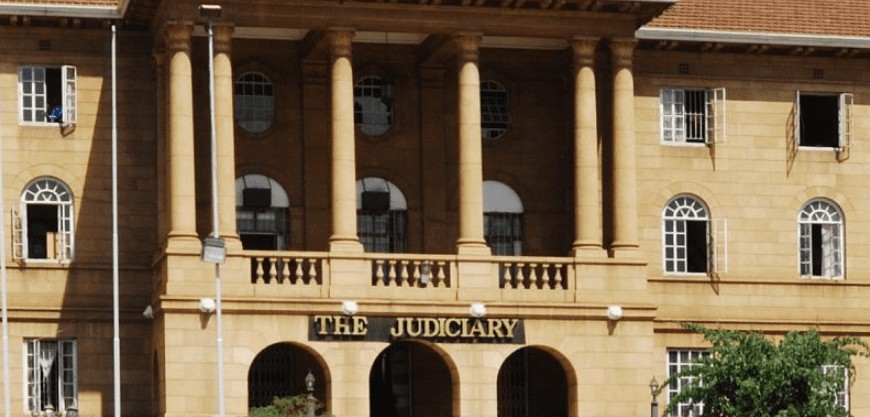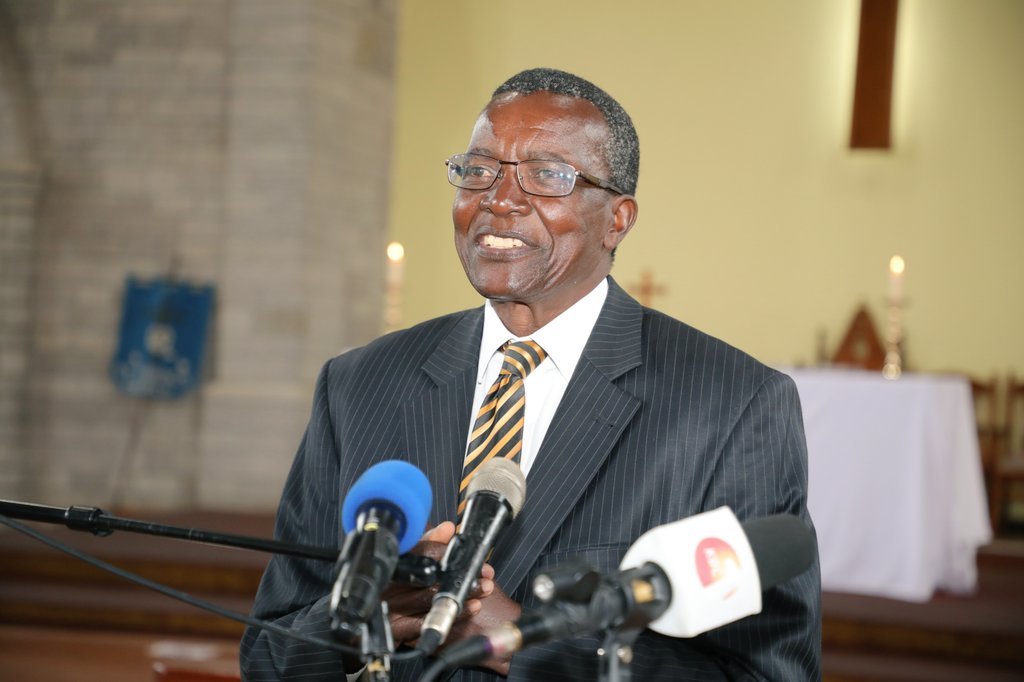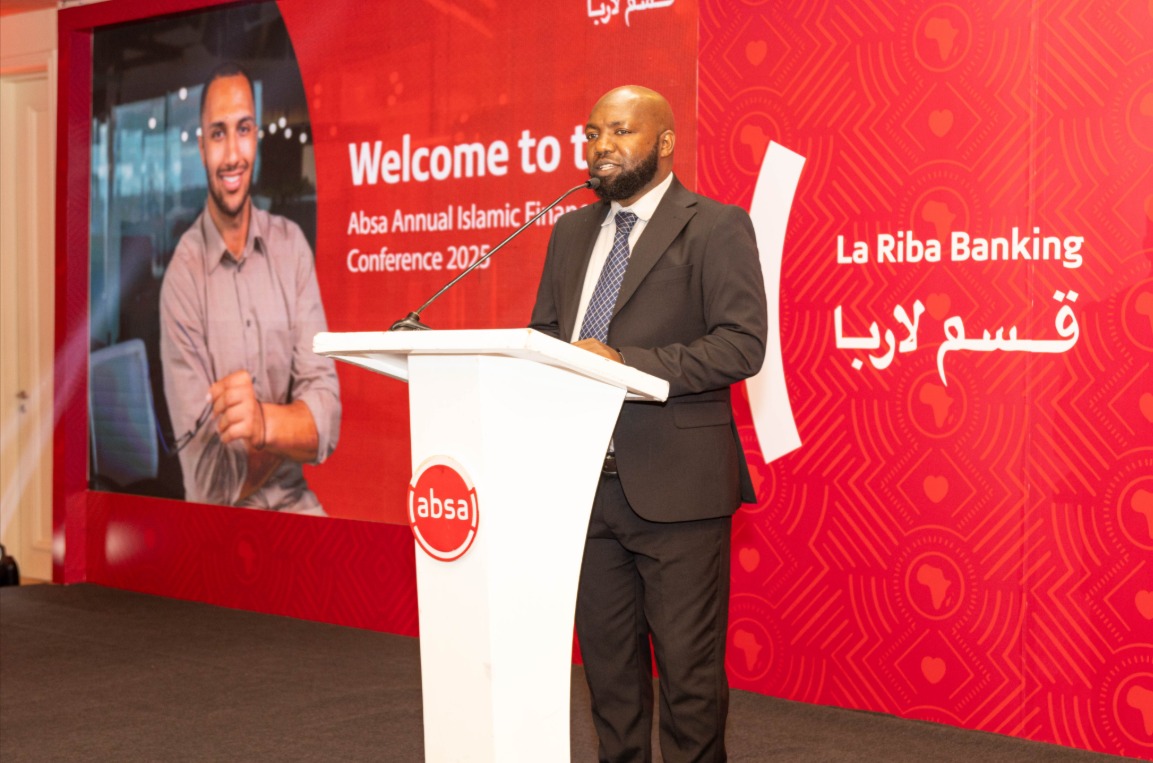Absa’s La Riba at 20: How Islamic Banking reshaped Kenya’s financial landscape
Islamic finance is one of the fastest-growing segments of the global financial industry, with assets now surpassing USD 4.5 trillion, according to a report by the Islamic Financial Services Board.
Twenty years ago, Absa Bank took an unusual step. It walked into Nairobi’s historic Jamia Mosque, not to market loans or open accounts, but to listen. At a time when few Kenyans had even heard of Islamic banking, the bank’s leadership was exploring how to offer financial services that aligned with the faith of millions of Muslims across the country.
Two decades later, that bold decision has grown into La Riba, Absa’s Islamic banking division — and with it, an entire industry that is reshaping access to finance in Kenya.
More To Read
- Absa launches women-only Islamic bank account to spur financial inclusion
- Kenya launches Islamic finance association to unlock growth in Sharia-compliant banking
- Absa opens 87th branch in Kawangware to boost banking access in Nairobi's outskirts
- Absa unveils first fully mobile Shariah-Compliant banking platform
- Nairobi Muslim business community explores investment opportunities in Tatu City
- Absa Bank Kenya ordered to pay a former employee Sh5M for privacy violations
For Tego Wolasa, Absa’s Head of Islamic Banking, the story of La Riba is deeply personal. His career began in conventional banking, but the discomfort of working in interest-based systems soon pushed him to make a life-changing decision.
“As a Muslim, my conscience would not allow me to continue,” Tego recalls. “I chose to leave banking altogether until I discovered Islamic finance. I went back to school, studied Islamic finance in Pakistan and the UK, and later, Islamic studies at Umma University. That choice not only defined my career—it aligned perfectly with the birth of La Riba.”
Faith meets finance
At its heart, Islamic banking operates on a principle that sets it apart: interest, or riba, is prohibited. Instead, banks and customers engage in trade-based contracts — buying and selling assets, sharing profits and losses, and ensuring transactions avoid speculation or exploitation.
“In Islamic finance, money is not a commodity,” Tego explains. “If you borrow 100 shillings, you return 100 shillings. Profit is only made through real trade — buying a refrigerator, for instance, and selling it back at a small margin. It’s not just banking; it’s honest business.”
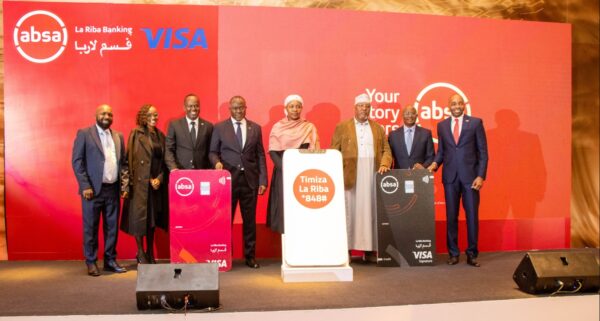 Absa Bank Kenya launches La Riba Timiza, the country’s first fully mobile Shariah-compliant banking platform by a Tier 1 bank, alongside the unveiling of the La Riba Card, which offers customers interest-free access to digital financial services. (Photo: Absa Bank/X)
Absa Bank Kenya launches La Riba Timiza, the country’s first fully mobile Shariah-compliant banking platform by a Tier 1 bank, alongside the unveiling of the La Riba Card, which offers customers interest-free access to digital financial services. (Photo: Absa Bank/X)
This ethical foundation, he says, makes Islamic banking attractive to both Muslims and non-Muslims alike. “You don’t have to be Muslim to benefit. Just like you don’t need to be from the coast to enjoy Swahili food, Islamic banking is simply another way of conducting business—one that emphasises fairness and inclusion.
Driving financial inclusion
Islamic finance is one of the fastest-growing segments of the global financial industry, with assets now surpassing USD 4.5 trillion, according to a report by the Islamic Financial Services Board. In Kenya, the sector is steadily expanding as demand for ethical and Shariah-compliant banking increases.
Institutions such as Absa’s La Riba have positioned themselves to tap into this market, particularly in Eastleigh, widely regarded as the country’s commercial hub for Islamic finance.
The industry’s resilience during the 2008 global financial crisis, coupled with diversification into products such as Shariah-compliant mutual funds and Takaful (Islamic insurance), has strengthened confidence in its growth both locally and globally.
Kenya’s Muslim population, estimated at around six million, has historically felt excluded from conventional finance. By offering products that comply with Islamic principles, Islamic banking is increasingly being viewed as a key driver of financial inclusion.
“Financial inclusion is not just a government agenda; it’s a moral one,” Tego says. “If millions of people are uncomfortable with conventional banking, then we must provide an alternative.”
La Riba’s product range now spans mobile financing, debit and credit cards (La Riba Timiza and Absa La Riba Card), SME support, and even specialised women-focused products. One of its newest offerings, Sultanah—Arabic for “queen”—is designed to empower women in business and employment.
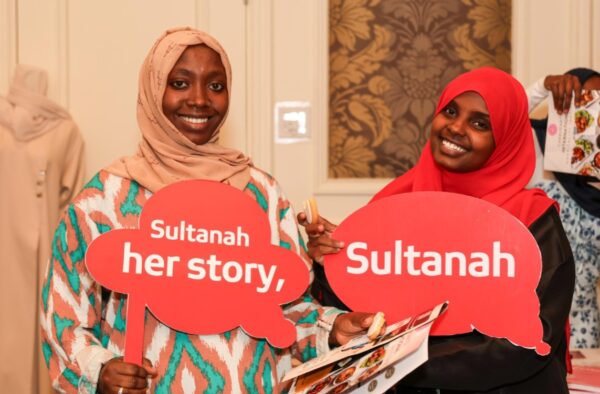 Absa Bank's Sultanah is Kenya’s first women-only Shariah-compliant proposition in the market. (Photo: Absa Bank/X)
Absa Bank's Sultanah is Kenya’s first women-only Shariah-compliant proposition in the market. (Photo: Absa Bank/X)
The La Riba Timiza is a mobile banking solution that offers customers convenience in payments, instant short-term financing, and the ability to save towards a goal in accordance with Islamic finance principles. Customers can access this via the Timiza mobile application, which is available on Google Play or the App Store and select the La Riba option, or through the USSD code *848#.
On the other hand, the La Riba Card serves as an everyday payment solution for individuals and businesses.
La Riba customers benefit from an unsecured financing limit with flexible repayment options, exclusive discounts with every Visa card swipe, cashback rewards on local and international purchases, and access to premium international Airport Lounge experiences, among other advantages.
The La Riba Sultanah account serves as a tool for customers to effortlessly manage their finances and grow their savings, all while adhering to their values. Additionally, customers can access diverse Shariah-compliant personal and business financing, mentorship and networking, and markets through business clubs and partner conferences.
“From Khadija, the Prophet Muhammad’s wife, who was a renowned merchant, women have always been central to trade in Islam. With Sultanah, we are reviving that legacy by giving women access to financing, mentorship, networking, and even mental health support,” Tego notes.
Overcoming awareness gaps
The journey, however, has not been without obstacles. Regulatory uncertainty, limited expertise, and persistent myths about Islamic banking have slowed growth.
Tego acknowledges the challenges: “Many Muslims still don’t fully trust or understand the products. That’s why we’ve invested in awareness—training imams across 87 mosques, building a network of scholars, and even sponsoring Kenya’s first-ever Islamic Finance Conference this year.”
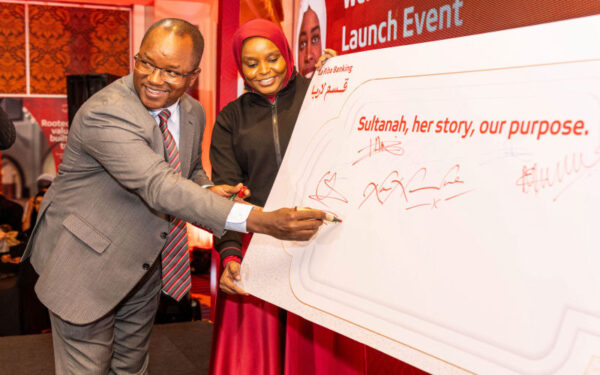 Absa Bank Kenya Chief Finance Officer Yusuf Omari signs the commitment board during the launch of 'La Riba Sultanah' as Lutfa Anas Ali looks on. (Photo: Handout)
Absa Bank Kenya Chief Finance Officer Yusuf Omari signs the commitment board during the launch of 'La Riba Sultanah' as Lutfa Anas Ali looks on. (Photo: Handout)
Absa also played a leading role in forming the Association of Shari’ah Compliant Service Providers of Kenya, which brings together banks, insurers, pension schemes, and investment firms to strengthen the sector.
In addition to its advocacy work, the association plans to focus on research and data collection to provide evidence-based insights. This will help inform policymaking and contribute to the development of responsive regulatory frameworks. By collecting trustworthy data, the association aims to connect Islamic financial principles with the country's current laws and economy, which will help encourage more people to use them.
Looking beyond Kenya
As Absa marks 20 years of La Riba, the vision extends beyond national borders. With massive Muslim populations in Nigeria, Ethiopia, and across North and West Africa, the bank sees opportunity for regional integration.
“The future of Islamic banking in Africa is about connection,” Tego says with conviction. “We want to move from merely complying with Sharia rules to measuring impact — on families, communities, and economies.”
A call to integrity
For Tego, the celebration of 20 years is as much about reflection as it is about ambition. His message to Kenya’s Muslim community is simple but urgent: align faith with practice.
“Don’t be a Muslim in the mosque and then abandon your values in business,” he says. “Even if you don’t fully understand Islamic banking, it is still safer and more ethical than conventional banking. And as we continue to grow, the products will only get stronger.”
Two decades on, La Riba is no longer an experiment but a movement — one that began with a conversation at a mosque and now seeks to transform finance across Africa.
Top Stories Today










